K. M. Fajardo is a second-generation Filipino Canadian writer from the Toronto suburbs. She graduated from the University of Waterloo with a degree in Global Business and Digital Arts before working in the tech industry. After a childhood spent roaming bookstores, she now lives and writes in Toronto with her rescue cat, Clementine. Local Heavens is her debut novel.
I had the opportunity to interview K. M., which you can read below.
First of all, welcome to Geeks OUT! Could you tell us a little about yourself?
Thank you for having me! I’m K. M. Fajardo, a speculative fiction writer from Ontario. I majored in Global Business and Digital Arts at the University of Waterloo, lived abroad in Seoul for a bit, and have been writing for most of my life. Most recently, I was working as a digital designer in the tech space. I currently write full-time and am based in Toronto.
What can you tell us about your debut book, Local Heavens? What was the inspiration for this story?
The premise had come to me early in the pandemic. I thought the themes of Gatsby and cyberpunk slot together very naturally, so shortly before it entered public domain, I started to ruminate on why this classic has transcended its time period and remained relevant in the cultural conversation. For me, what resonated most was its portrayal of class lines, the destructiveness of wealth and desire, how the most powerful people get to escape the consequences of their own mistakes, and who pays the true price. A lot of these elements would work well in dystopian fiction and cyberpunk was a genre I’d always enjoyed.
In those early months of COVID—where interaction was confined to digital spaces and many of us became hyper-aware of the way class and technology impact our humanity—the threads of “cyberpunk Gatsby” began to weave together. Local Heavens very much straddles the past and future at the same time. How has our world been shaped by capitalism and technology? How has it stayed exactly the same? This is what I was interested in dissecting. The project was not only a love letter to Gatsby, but an interrogation of its legacy and its characters.
As a writer, what drew you to the art of storytelling, especially speculative fiction?
For a while, I was focused on literary fiction. My pivot to sci-fi and fantasy happened only a few years ago. I think my heart has always been more drawn to speculative fiction. I grew up on a steady diet of video games and anime, and maybe that has shaped my tastes, but there’s something about the strangeness and boundary-breaking of speculative worlds that I’ve always found the most creatively stimulating.
Storytelling for me is both about holding a mirror to reality while revealing the gaps where that reality fractures into something else. Following the rabbit hole of this in-between space—where a parallel universe exists, or there is magic, or aliens, or technology we can’t yet fathom—is where I feel I’m meant to be as a writer. For me, every work is in some way a personal reflection on whatever question or idea interests me at any given time. Writing is my way of trying to answer that question for myself. If it can do that for another person too, even better.
Local Heavens is said to be a cyberpunk retelling of The Great Gatsby. As an author who has previously addressed online the desire to avoid the more techno-orientalist elements of cyberpunk fiction, how would you address your own relationship/thoughts on this element?
There was a short story I wrote a few years ago, Sway With Me Until We Bleed, published in 2023 by Augur Magazine, that I think touches upon some of my thoughts on this. The story was actually a launching pad for Local Heavens. I wrote it from the perspective of a retired actress, grappling with her identity and agency. Where does her persona end and her “real” self begin? Who feels entitled to her and how does technology exacerbate this parasocial entitlement and exoticization? These questions carried into my cyberpunk iteration of Daisy Buchanan. She’s a mixed-race Filipina and virtual reality performer-turned-trophy wife. Even those who think they know her only see her through this narrow lens. I wanted to portray her as someone repeatedly underestimated, but also, a victim of this subtle kind of dehumanization — one that masquerades as admiration, even love.
As a Filipino writer, I also wanted to write a cyberpunk future where Southeast Asia is present in the world-building, and where Asian cultures in general aren’t coded as cold and inorganic. Although the book takes place in an alternative America, there are many references to the way the Global South has, as a result of climate change, needed to adapt and innovate. The West isn’t at the forefront of progress and is, in fact, struggling to keep up. This also is, in part, a remix of how “old” and “new” money is reflected in the book, with characters like Tom clinging to western elitist attitudes.
How would you describe your creative process?
It varies a lot depending on the project. For Local Heavens, it was a deeply collaborative process, with my brother being my critique partner and first reader. There were a lot of moments where I needed to fix a plot issue or come up with a world-building detail and we would talk through it together. Some of the best moments in the book came up in these conversations. Getting to workshop issues aloud can get me out of the hole pretty quickly.
What stays consistent from project to project is that usually when I come up with an idea, I let it sit for a really long time before I write it. From there, I start to dump any and all ideas for characters, scenes and themes into a document, and then start connecting the dots. It’s a pretty messy process, but either I step back and realize the ideas are too disjointed, or a plot starts to form from the chaos.
What are some of your favorite elements of writing? What do you consider some of the most frustrating and/or challenging?
I find character work really satisfying. It’s cathartic to write the pivotal, turning-point moments for a character. But I love line-editing the most. Polishing sentences feels to me like solving a riddle, or coming up with the perfect melody. Line-level writing in general is a pretty musical experience for me. Local Heavens especially is written in the spirit of F. Scott Fitzgerald whose prose is very melodic. Usually I can “hear” the rhythm of a sentence before I even have the exact words.
The most challenging part for me is always drafting. Even though I have an outline and usually know how my books are going to end, a first draft always feels like I’m writing blind. Once I have a draft finished, though, I love editing. That’s when the book starts to feel real. I can watch it shapeshift into a better form each and every time.
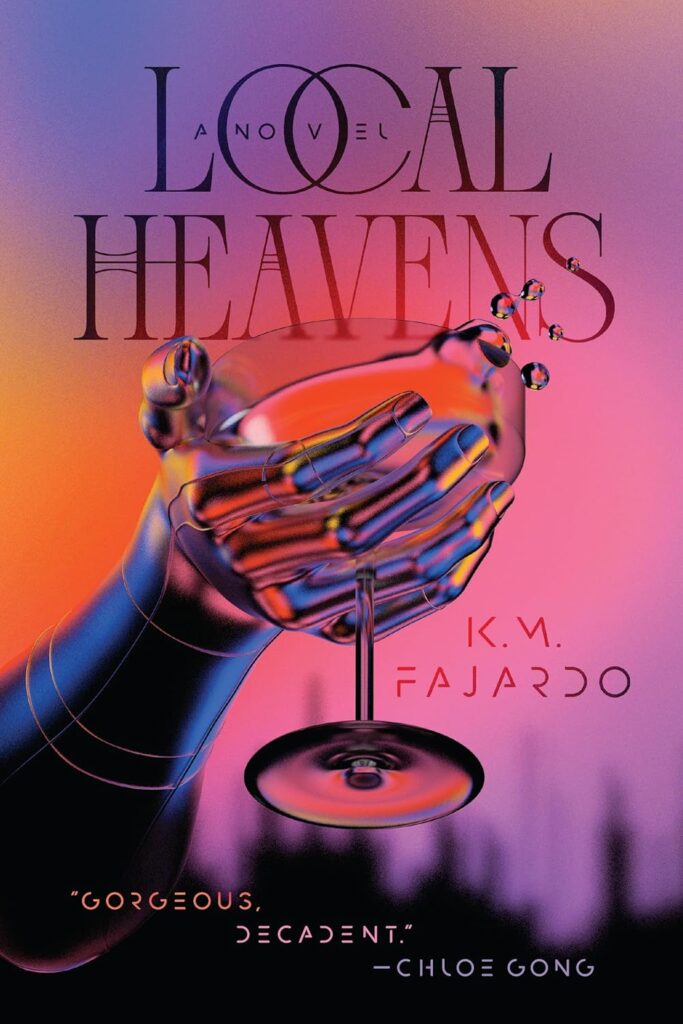
As authors, who or what would you say are some of your greatest creative influences and/or sources of inspiration in general?
It truly changes with every book. I tend to latch onto certain writers depending on what I’m currently writing. I like F. Scott Fitzgerald, Sylvia Plath, Daphne Du Maurier and Nick Joaquin, just to name a few classic authors. I read a lot of William Gibson over the years as well. I think Feed by MT Anderson was one of my huge inspirations growing up and an incredibly prescient dystopian work. Cowboy Bebop (1998) was pretty formative for me too in the way it blends noir, jazz and sci-fi.
Others authors I enjoy are Leigh Bardugo, Shelley Parker-Chan, Nnedi Okorafor, Scott Lynch, Madeline Miller, C. S. Pacat, Alix E. Harrow, and Olivie Blake — among many others!
What’s a question you haven’t been asked yet but that you wish you were asked (as well as the answer to that question)?
No one ever asks me about the technical stuff in the book. I put a lot of thought into how cyberspace, hacking, and the netdiver “culture” would look and feel. (I call it “netdiving” in LH, but other cyberpunk works might call it “netrunning.”) From corporate netdiving, to the underground scene, I wanted this to feel real and lived-in, such that a reader could understand how the practice developed and how it’s utilized in this world. All the nomenclature and slang was a creative exercise too. (The netdiving department at a company, for instance, is nicknamed “the gallows” because of the way divers’ bodies are suspended when they’re jacking into cyberspace. It’s also a morbid nod to the imagery of “working yourself to death.”)
I generally like getting to talk about small details like that, especially more subtle Gatsby easter eggs—what I kept, what I changed, and why. There are a lot of super tiny things sprinkled throughout the book that most readers probably won’t notice. But I hope some do!
What advice might you have to give for any aspiring writers out there?
Firstly, write to your passions, not to the market. I’d been deterred from trying to sell a literary sci-fi book as my first novel. There are going to be people that don’t believe in the “sellability” of your work but plain obsession fuels the best stories. I think this past year has taught me that the right team paired with the right story can find the right readers. Without sugar coating anything, it’s a harder industry for marginalized writers, but we also need our stories now more than ever.
Secondly, fall in love with the process, not the result. Most days, writing is going to be hard and ugly. It’s also going to be incredibly rewarding and magical. There is a lot to be excited about in building out your author dreams — holding your book for the first time, hitting a list, winning an award — but you have to love the work and the craft, firstly and deeply.
Are there any other projects you are working on and at liberty to speak about?
I’m wrapping up an adult fantasy book right now. I can’t say much yet but I’d pitch it as Filipino-inspired colonial history and myth, meets a bit of gang politics, with a gothic undertone. Indulgently, I’d also love to return to the world of Local Heavens if the fates ever allowed it. There’s a premise and a couple chapters done, but at the moment, it’s just for me. I’m having fun writing it with zero pressure.
Finally, what books/authors would you recommend to the readers of Geeks OUT?
And The River Drags Her Down by Jihyun Lee (out October 9) is a beautifully-written YA gothic horror about sisterhood and grief. I also really enjoyed Cry, Voidbringer by Elaine Ho (out October 28) which is one of the most memorable epic fantasies I’ve read in a long time.

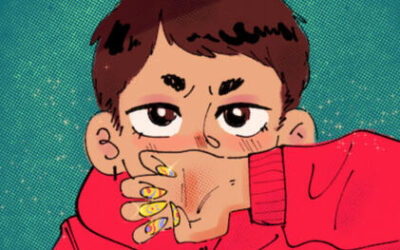
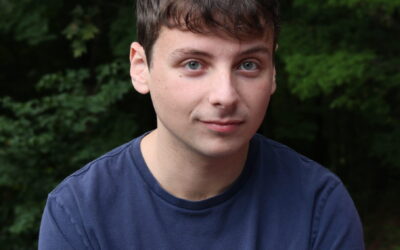
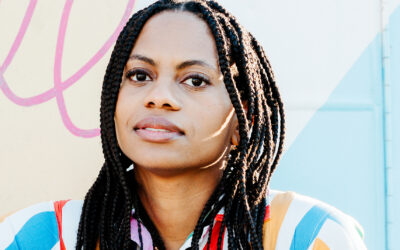

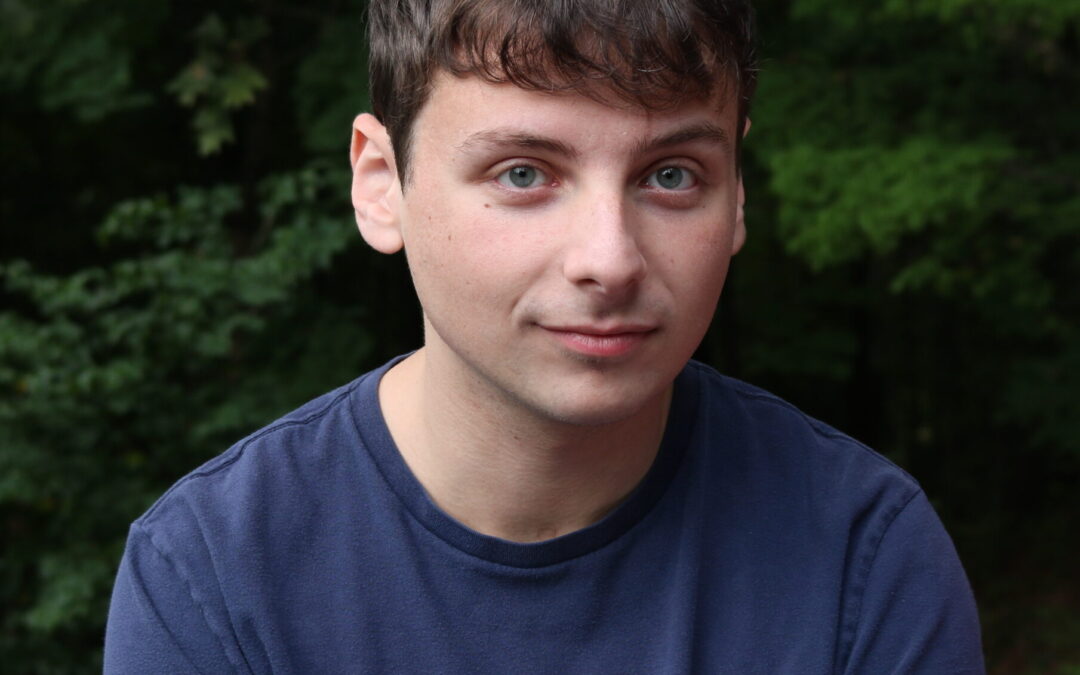
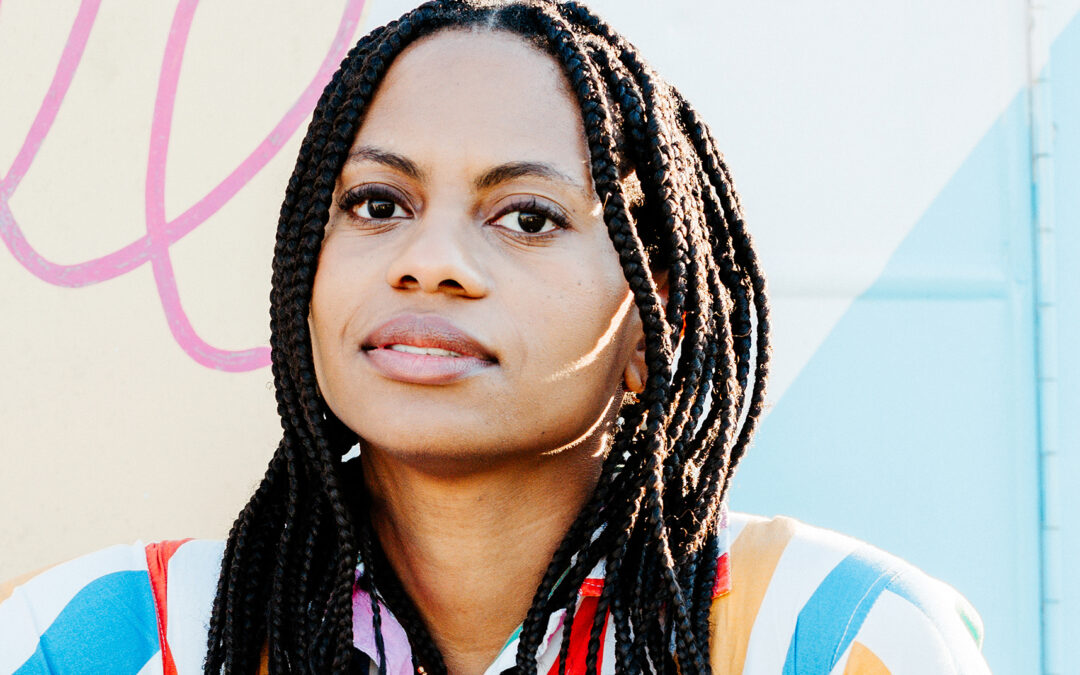
0 Comments